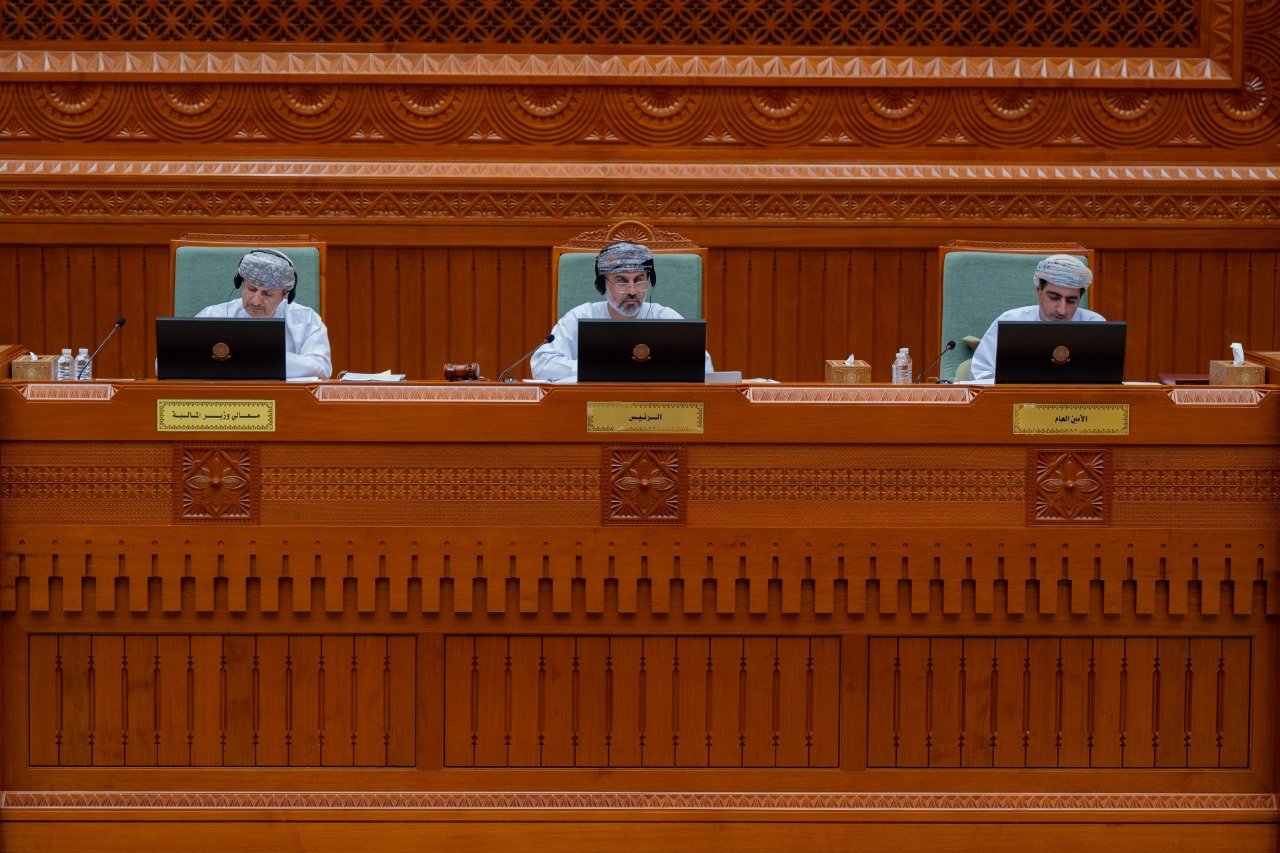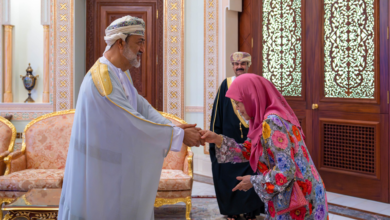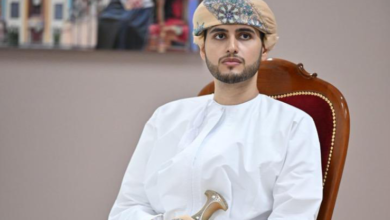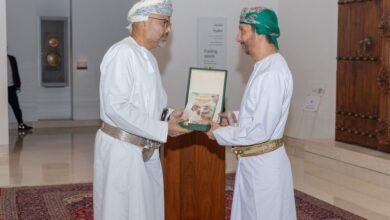The Finance Minister and Oman’s Shura Council discuss the 2025 proposed budget.
Oman Horizon Bulletin

In order to examine the proposed state general budget for the fiscal year 2025, the Shura Council met today for the second session of its second annual meeting of the tenth term, which was hosted by Finance Minister H.E. Sultan bin Salim Al Habsi.
Muscat – Chairman of the Shura Council, H.E. Khalid bin Hilal Al Maawali, opened the session by highlighting the significance of the discussion, which provided council members with an opportunity to learn about the draft budget’s key components, including projected revenues, expenditure estimates, economic growth rates, and the financial outlook for the state.
He also emphasised the focus on the government’s financial and monetary policies, as well as projections for oil production rates and prices in the coming year.
“The session serves as a platform to discuss the draft general budget of the state for the fiscal year 2025, and, through it, learn about the size of revenues, expenditure estimates, economic growth rates, the financial and monetary policy, the size of savings versus investment rates, oil production rates and prices expected during the coming year,” said the Chairman.
He noted that the session helps review the standards and priorities of the upcoming development projects, assess global economic trends, and their potential impact on the national economy. “It also enables us to understand the government’s strategy to sustain its development achievements and meet the economic and social goals outlined in the Oman Vision 2040,” he added.
The Minister of Finance shared an overview of the government’s financial policies, noting that the economic measures adopted since 2020, combined with the rise in oil prices, had positively impacted the nation’s financial indicators. He highlighted the significant reduction in public debt and the restoration of the country’s investment-grade credit ratings.
“The government has focused on enhancing non-oil revenue growth, improving public spending efficiency, and continuing efforts to reduce public debt to ensure financial sustainability and economic growth,” said H.E. Al Habsi.
However, he cautioned that global political and economic uncertainties could cause fluctuations in financial performance, stressing the need for continued oversight of the financial situation to mitigate potential risks. “The government remains committed to maintaining financial, economic, and social stability, aligned with the goals of the tenth five-year development plan and Oman Vision 2040,” he added.
The 2025 budget draft, prepared with these considerations in mind, prioritizes essential services such as education, healthcare, and housing, while promoting economic diversification by supporting projects and companies that contribute to non-oil sector growth.
Council members discussed the budget’s most crucial elements, including fiscal policies, revenue and expenditure estimates, public debt management, inflation forecasts, and the sustainability of the country’s development trajectory. The session also addressed the government’s approach to handling potential challenges posed by fluctuating oil prices and global economic shifts.
The session included briefings on several government-proposed draft laws, including those concerning real estate regulation, communications and information technology, and the fight against human trafficking. The Shura Council also reviewed and approved the Economic and Financial Committee’s report on the draft state general budget for 2025.
For all the latest news from Oman and GCC, follow us on Instagram, like us on Facebook & subscribe to our YouTube Channel, which is updated daily.





